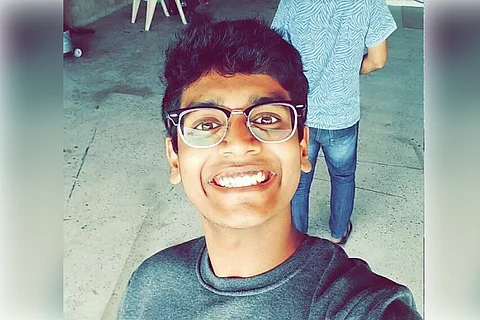

Before he took the extreme step of jumping off the 19th floor of a Mumbai hotel, 23-year-old Arjun Bhardwaj may have reached out to those around him on Facebook. More than one report mentions that Arjun had been depressed for some time before he killed himself, after broadcasting a final message on Facebook.
Hearteningly, following the incident, the Mumbai police issued a series of tweets with the hashtag #WeAreListening, offering those experiencing depression and feeling suicidal a friendly ear in the metropolis. “We could be your 3 am friend,” offered one of its tweets. “Always better to speak up than give up,” said another.
But helping those around us dealing with depression is not something that can be left to the police alone. With at least one in twenty people reportedly suffering from mental disorders like depression or anxiety, it is a responsibility that falls on all of us. The News Minute is republishing an article written in association with The Live, Laugh, Love Foundation on what you can do to help a loved one or a friend who seems to be struggling with depression.
They are all around us. They fake a smile, respond with a dispassionate, ‘I am fine.’ They could be doing their jobs, stick to the usual routine, but there is always a hint that something is wrong. Skipping lunch, giving office parties a miss and perhaps getting too emotional too quickly.
It could be anything. The person could just be sad, working through some personal problems. It could be an isolated moment of despair, or just a bad hair day. It could be the traffic, or the moron boss.
Or, the person could be suffering from depression.
Not everyone who seems sad is depressed. Sadness and depression are two very, very different things.
Sadness is normal. It is a human emotion. All of us experience it and it is usually triggered by a negative event. Sadness blows over. We get to be happy once the events which made us sad fade away.
Depression is a mental illness. It is an abnormal state of mind. It makes us sad about everything, and sadness is a symptom. It affects our behavior and emotions. Depression affects all aspects of our life.
We can snap out of sadness, but we cannot wish our way out of depression.
When you see a person seemingly down and out, you could try and cheer them up. It could just be sadness. But if the sadness prolongs, it could mean depression.
According to the Indian government, at least 5% of India population suffers from common mental disorders like depression or anxiety, one of them could be the person next to you. All of them need our help.
So, what should you do if you suspect a person to be depressed?
1. Listen to them, don’t criticize
Being patient is very important in dealing with a person who could be depressed. We need to listen to the person with patience, whatever they have to say. Just speaking out could help the person a lot. Respond with kindness, and don’t try to counter their feelings. We really do not know how that person feels, so we do not know better. Don’t criticize, just hear them out.
2. ‘Just be happy’ is bad advice
Don't try to offer quick-fix solutions like "Buck up", "Think positive" or "You have nothing to be depressed about". These statements may seem supportive, but to someone suffering from clinical depression, these statements can make them feel worse. People suffering from depression could already be trying to ‘buck up’ and ‘think positive’, and know that their condition persists even after that.
3. Talking about suicide isn’t attention-seeking
Take any statements about suicide or wanting to die very seriously. Don't dismiss it as a cry for attention. Suicidal tendency is a key symptom of depression, and suicide death rates in India are among the highest in the world according to some studies. Talk to the person about it seriously, do not trivialize those feelings.
4. Get them professional help
You can help, but you cannot cure depression. Depression is a clinical condition which requires professional help. Encourage the person to get professional help and support them through the process. Go with them to the doctor if they want, but don’t insist on going along. Follow it up with them till they have sought a psychiatrist’s advice.
5. Be empathetic
Be kind and show some empathy, and that is not to be confused with sympathy. Don’t disregard their feelings, and if appropriate, give the person a hug. Spend time with the person, help them with cooking or other household chores. Take them out, try to be a positive influence on them. But give them space if they ask for it, they are not your science or social project.